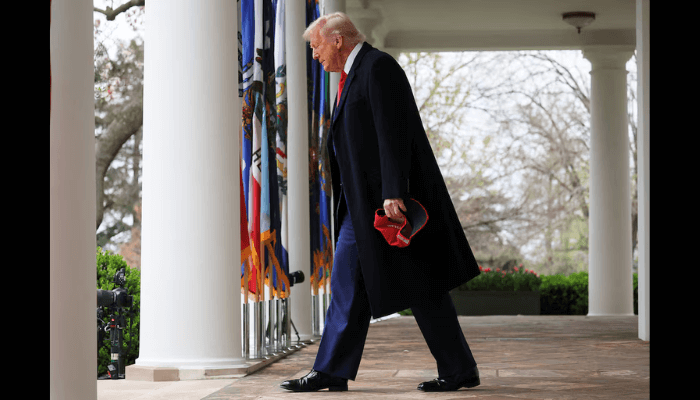United States President Donald Trump is set to host the leaders of five African countries at the White House next week for high-level discussions on trade and investment, but Africa’s largest economy—Nigeria—has been left out of the invitation list.
The White House announced on Wednesday that the presidents of Gabon, Guinea-Bissau, Liberia, Mauritania, and Senegal will meet with President Trump on July 9 for talks followed by a lunch at the White House. The agenda will focus on what the U.S. government calls “commercial opportunities” aimed at strengthening economic ties between America and these African nations.
A White House official said the meeting is part of Trump’s effort to explore “incredible commercial opportunities” across the African continent that benefit both the United States and its partners. However, the exclusion of Nigeria—Africa’s most populous country with over 200 million people and the largest economy on the continent—has raised eyebrows in diplomatic and business circles.
Nigeria, a major oil-producing country and one of the United States’ largest African trade partners, has traditionally played a leading role in U.S.-Africa relations. The decision to omit Nigeria from this high-level engagement is seen by many as a significant diplomatic snub, especially as other invited countries, such as Guinea-Bissau and Mauritania, have considerably smaller economies and less direct commercial engagement with the United States.
Africa Intelligence and Semafor earlier reported that the Trump administration would host the five invited nations at a summit scheduled to run from July 9 to July 11 in Washington. However, the White House has only confirmed a single-day meeting so far.
This latest development comes amid a sharp change in how the Trump administration engages with Africa. Since returning to office, Trump has slashed U.S. foreign aid to many African countries, arguing that traditional aid models were wasteful and did not support his “America First” agenda. Instead of development assistance, the administration has prioritised trade and investment initiatives that deliver commercial returns for U.S. companies.
Speaking on Tuesday, U.S. Secretary of State Marco Rubio explained that America is shifting away from “charity-based” aid to a model that focuses on mutual economic benefit. “The U.S. will now favour countries that show both the ability and willingness to help themselves,” Rubio stated.
This approach means that African countries will now be assessed on how well they can facilitate commercial partnerships rather than how much aid they can absorb. In May, a senior official at the State Department’s African Affairs bureau, Troy Fitrel, revealed that American diplomats stationed across Africa will now be judged by how many commercial deals they help broker, not by development or humanitarian outcomes.
The five countries invited to the July 9 meeting have all enjoyed historical ties with the United States. Liberia, in particular, was established in the 1800s by freed African-American slaves and has long maintained a strong diplomatic bond with Washington. Senegal and Guinea-Bissau also have cooperative political and military relationships with the U.S., while Gabon and Mauritania are seen as emerging partners in the energy and logistics sectors.
Despite these ties, the criteria for selecting these five nations remain unclear. The omission of Nigeria, a top oil exporter to the U.S. and home to a large diaspora community in America, has sparked speculation about deteriorating diplomatic relations or a possible reevaluation of Nigeria’s strategic value under the Trump administration’s new foreign policy.
Observers suggest that the U.S. may be targeting smaller, more stable partners that can provide less complex investment environments for American firms. Others believe Nigeria’s current political and economic challenges, including issues with transparency, insecurity, and regulatory hurdles, may have influenced the decision to leave it out of the talks.
The Trump administration insists that its rebranded Africa strategy is meant to foster genuine partnerships that are economically beneficial for both sides. The aim, according to officials, is to replace what they call decades of dependency-based aid systems with a new era of private-sector-led development. But critics argue that this strategy risks marginalising key African powers and reducing the scope for long-term development cooperation.
Meanwhile, Nigerian officials have not publicly commented on the exclusion. The Federal Ministry of Foreign Affairs has yet to issue a statement or clarify whether any discussions are ongoing with the U.S. to address the diplomatic gap.
As the July 9 meeting approaches, it remains to be seen whether Nigeria’s absence is a temporary oversight or a sign of a more significant diplomatic shift in U.S.-Nigeria relations.
